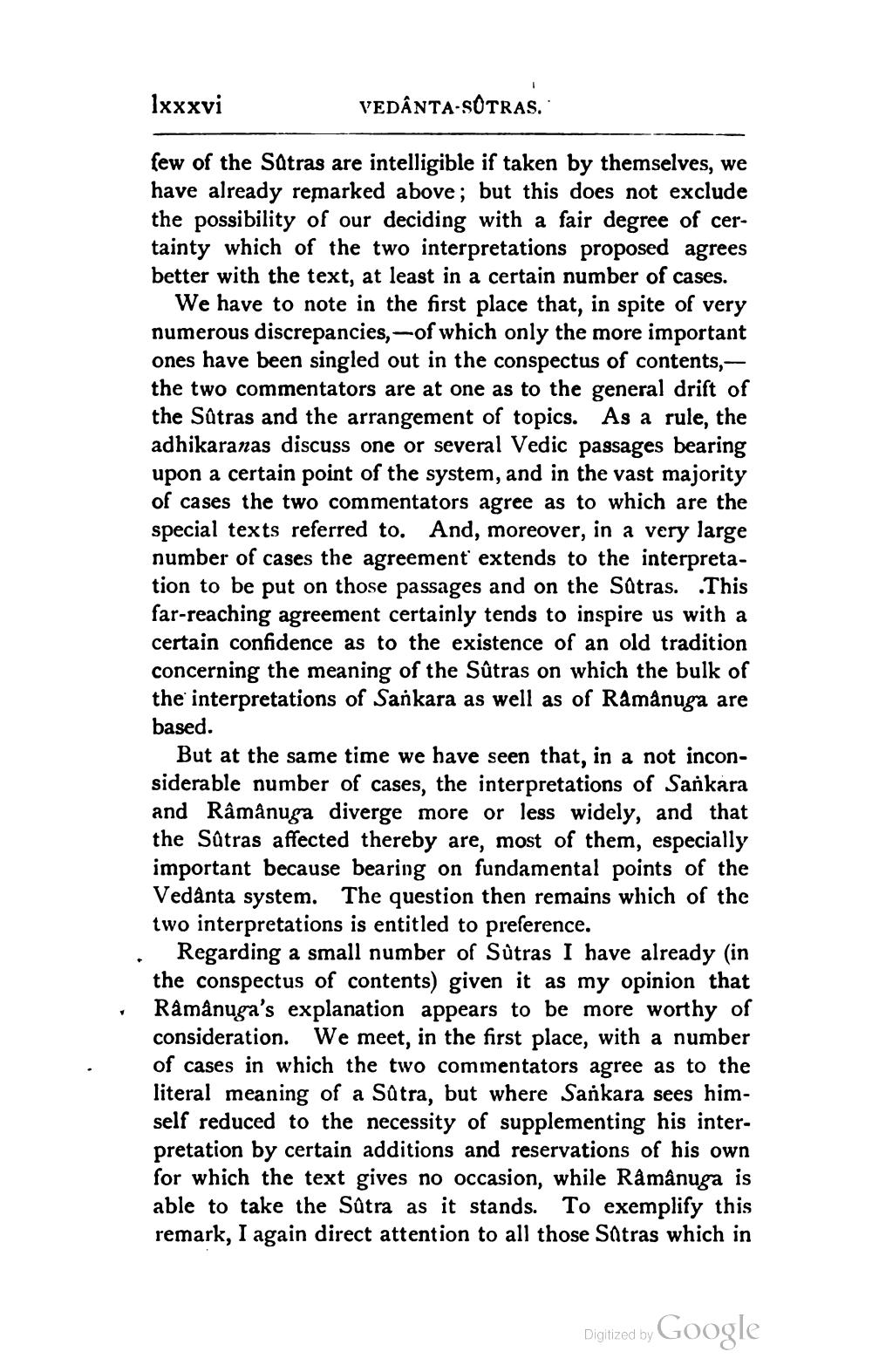________________
1xxxvi
VEDÂNTA-SOTRAS.
few of the Satras are intelligible if taken by themselves, we have already remarked above; but this does not exclude the possibility of our deciding with a fair degree of certainty which of the two interpretations proposed agrees better with the text, at least in a certain number of cases.
We have to note in the first place that, in spite of very numerous discrepancies, -of which only the more important ones have been singled out in the conspectus of contents, the two commentators are at one as to the general drift of the Sûtras and the arrangement of topics. As a rule, the adhikaranas discuss one or several Vedic passages bearing upon a certain point of the system, and in the vast majority of cases the two commentators agree as to which are the special texts referred to. And, moreover, in a very large number of cases the agreement extends to the interpretation to be put on those passages and on the Satras. This far-reaching agreement certainly tends to inspire us with a certain confidence as to the existence of an old tradition concerning the meaning of the Sûtras on which the bulk of the interpretations of Sankara as well as of Ramanuga are based.
But at the same time we have seen that, in a not inconsiderable number of cases, the interpretations of Sankara and Râmânuga diverge more or less widely, and that the Satras affected thereby are, most of them, especially important because bearing on fundamental points of the Vedanta system. The question then remains which of the
two interpretations is entitled to preference. . Regarding a small number of Sutras I have already (in
the conspectus of contents) given it as my opinion that Ramânuga's explanation appears to be more worthy of consideration. We meet, in the first place, with a number of cases in which the two commentators agree as to the literal meaning of a Satra, but where Sankara sees himself reduced to the necessity of supplementing his interpretation by certain additions and reservations of his own for which the text gives no occasion, while Râmânuga is able to take the Satra as it stands. To exemplify this remark, I again direct attention to all those Satras which in
Digitized by Google




